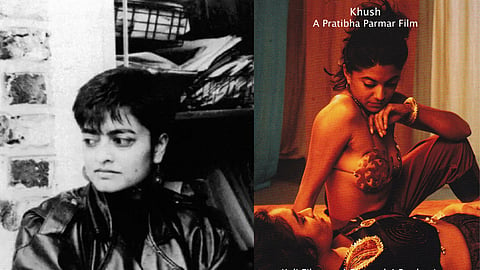
- HOMEGROWN WORLD
- #HGCREATORS
- #HGEXPLORE
- #HGVOICES
- #HGSHOP
- CAREERS
- ABOUT US
- CONTACT US

Everybody is gay now. Or at least, that’s what some people like to think. This idea that queerness is a new trend, a product of modernity, is far from truth. Being queer isn’t new, it’s just finally visible. What’s changed isn’t the sexuality of queer people, but cultivation of spaces where they can live authentically, where their identities can breathe without constant fear. For centuries, queerness had existed quietly, often erased or shamed into the shadows, labeled as 'unnatural' despite being as intrinsic to humanity as love itself.
Now that it's just beginning to join the discourse on sex and sexuality, some see it as an overtaking, while others know that there's still a long way to go before any semblance of equality can be reached. It was the voices of representation that demanded to be heard and acknowledged that led us this far and they have been in the fight since before we can imagine.
Back in 1991, when talking about being queer, especially as a South Asian, wasn’t just taboo but outright dangerous in many places, British writer and filmmaker Pratibha Parmar released Khush, a short documentary that shed light on the queer Indian experience. The word 'khush' in Urdu means ecstatic pleasure' or 'happy', and this film captured exactly that: the messy, complicated, but deeply joyful experience of being queer and brown.
The film brought together stories from the South Asian queer community across India, the UK, and North America. These heartfelt conversations became a real insight into the queer community from the time. People talked about being stuck between two worlds — dealing with homophobia and racism, while also trying to find spaces where they can just exist. But this wasn't a serious film by any means; there was joy in it. You could feel the sense of freedom that comes from finding people who get you, who share your struggles and your celebrations.
The queer voices were the backbone of the film. But it was Pratibha's cinematic storytelling that really painted a portrait of identity. The montages of classical dance performances and other symbols of Indian heritage alongside intimate, vulnerable interviews didn’t create a clash between 'old vs new' but a simple harmony of expression be it artistic or sexual. Her treatment of the film depicted queerness as just as much a part of Indian culture as Bharatanatyam or age-old traditions; a way of being. The dreamy sequences paired with the honesty of a life lived by truth gave the film a larger-than-life effect.
At the time Khush came out, queerness was still criminalized in India. The film became a lifeline for many people who couldn’t openly talk about their identities. Bootlegged copies were passed around in secret, sparking conversations and creating a sense of belonging in a time when it felt like the whole world was against you. And all of this came from the mind of Pratibha Parmar, who’s been a total force in the world of filmmaking and activism. She spent her career amplifying marginalized voices and shining a spotlight on women's rights.
Looking back, Pratibha Parmar’s documentary feels more modern and forward-thinking than a lot of the outdated criticisms and rigid notions we still hear about queerness today. Khush was made from a place of empathy and sincerity. It presented a much softer activism that appealed to beauty to plead a case for coexistence. Even today is stands as a point of reference for queer rights and portal for mutual understanding.
Follow Pratibha here and watch the trailer for Khush below:
